February 18, 2022
The Blame Game
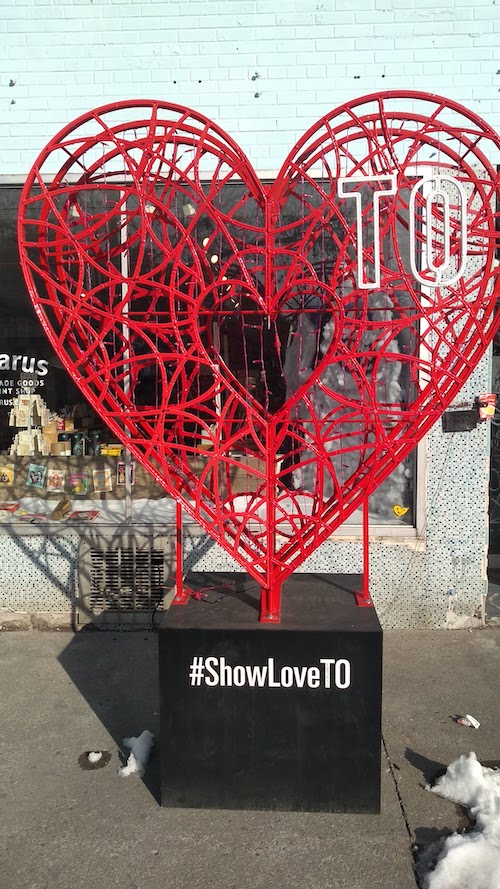
Every time I hear somebody exclaim at how our governments have failed us regarding Covid, I cringe. First, because it’s dawning on me that such ideas and others are playing right into dangerous alt-right tropes that are working away to undermine public trust in government and democracy, that so many passionate well-meaning people are being manipulated by forces they aren’t even aware of, and not just those poor people’s moms who’ve lost their minds to Fox News. But I also cringe because there’s not a single government the world over who has managed to get Covid just right. For a while, Jacinda Ardern was the exception to that rule, but even her small island nation managed to eventually be out-thwarted by the virus, out-thwarting being precisely what a virus is for.
Across Canada, we’ve seen public health officials celebrated and then denigrated for their handling of one wave or another, and provinces whose governments are spread across the political spectrum all have to eventually resort to drastic measures to contain Covid spread. It’s true that provinces with conservative governments have tended to do more poorly, though that could also be because there’s a lot of those at the moment. I wonder if anything would have been different at all if Covid had come around a few years ago during that brief period where half of Canada’s provincial leaders were women. (Not unrelated: I am looking forward to reading Kate Graham’s new book No Second Chances: Women and Political Power in Canada.)
The only people who are sure they have the answers right now are the people outside of power, because it’s easy to dictate choices when you don’t have to accept any responsibility for their consequences. Governing, on the other hand, is hard, especially when there really are no right or easy answers, when every decision brings wins and losses. The political spectrum is so reductive, every single ideology inadequate on its own to address the reality of our society’s challenges, and that’s never been more clear than when it come to Covid, where every government in the world has gotten it wrong and gotten it right some of the time (seriously, even Florida was right at least once, though I don’t think that Brazil ever was, the exception that proves the pudding), no matter their ideas about policy and what government should be.
It’s such an interesting moment, as I’ve written before, when nothing is certain—which is the very opposite of saying that things are hopeless.
Instead what I’m saying is that we need hope—along with creativity, and knowledge, and wisdom, and expertise, and understanding, and kindness, and patience, and so many more essential things—more than ever.
We need to stop blaming each other, and our leaders, even if (and maybe sometimes especially if) they’re not our faves—particularly since our rage appears to be being harvested for profit at the moment. There’s honestly never been a better time to be a person who has no real responsibility for anything, even if powerlessness isn’t fun. Because these days, power isn’t much fun either.
February 9, 2022
Notes on what is (hopefully) the final weeks of a plague
In the last week, I’ve booked airline tickets and concert tickets, though I’m still not ready to write any of these dates on the calendar. And even the dates that are on our calendar—for engagements much less monumental and crowded—are written faintly in pencil. We keep talking about jinxes. The last time we were supposed to fly to England was March 16 2020, and everybody knows what happened after that. I am sure I’m not alone in imagining the very act of imagining the future might be something of a risky endeavour.
*
I’ve been thinking about freedom, about what freedom means. How empty rhetoric really can be, The possibility that freedom really could be another word for nothing left to lose, because these seem to be sorts of people who’ve been employing the term a lot lately. Thinking about what freedom is once its been thoroughly drained of meaning. The idea of anything being “for freedom,” in particular an 18-wheeler truck parked obstinately in a city block whose driver is quite certain he has the right to demand a democratically elected government be overthrown. I’m remembering a comment by Elamin Abdelmahmoud on the Party Lines Podcast last year in response to the idea that Albertans have a particular affinity for freedom as opposed to the rest of Canada, and Abdelmahmoud dared to disagree, because surely all of us like freedom, every single one of us.
*
(I also think that freedom is a buzzword standing in for something darker, something sinister. That woman who writes cookbooks about glowing said she couldn’t stop crying as those trucks drove across the country, and that finally the world was waking up, and I just don’t trust anybody who’s pining for a revolution because, well, I’ve studied the twentieth century and revolutions never really worked out well for anyone except scary men with weird beards and people who run prison camps. For people who seem to spend so much time worrying about creeping totalitarianism, I am surprised these dots aren’t being connected.)
*
It seems like a weird time to be pitching a fit about Covid restrictions. See my first line about airline tickets and concert tickets. Even if vaccine requirements were your sticking point, if the trajectory we’re currently on continues, these are likely to be lifted as well, which will be a sweet relief, I tell you, because being screamed at about kindness and inclusion by people who refused to be vaccinated in a global health crisis really might just be the end of me, and the sooner I can never think about this ever again, the better.
*
I like everybody better when I don’t have access to a ticker-tape of their every waking thought.
*
For the last five days, an average of around 50,000 people been vaccinated in Ontario every day, a total of more than 700,000 people across the country. (You can find all those numbers here!) I don’t share these numbers in the spirit of “there’s more of us than them” (although I think this is probably the case) because I think that us-ing and them-ing is a terrible trap.
We’re all us, even if we disagree, and figuring how to make that work is how you build community, strengthen society. (Holding a city hostage with your very large truck is not how we make that work, however, in case anybody was wondering.)
The idea that some people’s interests matter more than others is such a dangerous one. (The idea that any of us are morally superior to those who disagree with us is just as bad.)
*
I continue to be strongly resistant to the use of the term “folks.” I mean, I hate it. It’s awful. And it doesn’t matter to me if it’s a right-wing populist saying folks or anyone else who’s saying folks. I don’t like the word “folks” because it’s not supposed to mean “people”, it’s supposed to mean “my kind of people.”
I am really really trying to be someone who says, “It takes all sorts,” and actually means it.
Especially since I think this is fundamentally true.
January 19, 2022
Voices
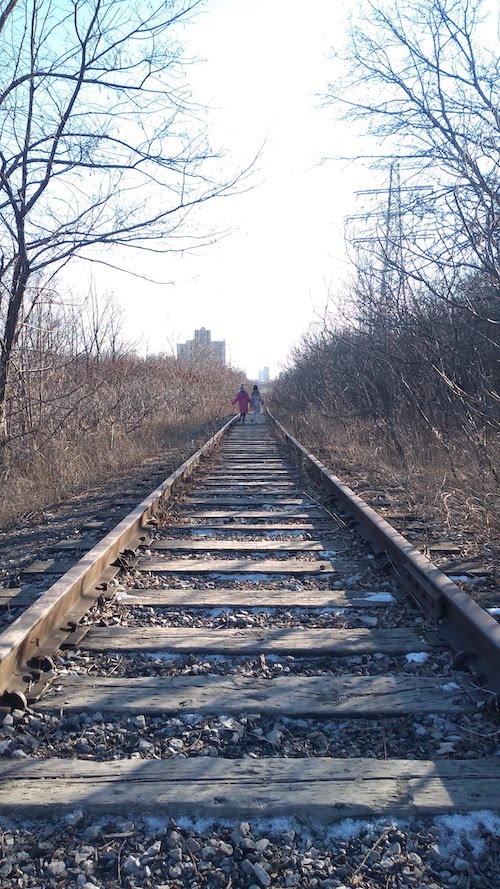
In Autumn 2020, I had to quit twitter because its chatter about school reopening and politicization of such things had made ordinary life impossible for me. Too many voices, too many egos, and the issue had become a power struggle instead of a project our communities had to partake in together. (Twitter also works to undermine public trust—in public health, in each other. And that’s bad news.)
And now, all these months later, I’m very glad I was able to get those voices out of my head, to keep things simple, to follow public health advice and send my children back to school today without the decision being an agonizing one, which has been the case for parents in so many other jurisdictions all along.
Every time our children have returned to school in Ontario, the rhetoric has been over the top, but never more than now. And is it now that such a reaction is finally justified? As ever, I don’t know. But also no one does. And if things are different this time, I can’t help but think of how much real currency was wasted by politicization, by advocates failing to be measured and careful in their responses to what was actually happening on the ground over the last two years.
Social media is brutal, friends. Last week several super smart people I know shared a post about an edited/out of context quote by CDC’s Dr Walensky regarding the deaths of people with comorbidities as “good news”. While people were advocating against ableism, they were also spreading misinformation and furthering right wing propaganda. It’s so easy to be played.
Unless you are actually a public health official, it really might be a good idea to unplug from all this and often. Talk to the actual people in your life—your family doctor, even. Beware of stats and clips devoid of their context. Be thoughtful about what you share online. Be curious. Ask questions. But also do your best to trust the people who know things when they give you answers.
I’m wishing good things for all of us in the weeks ahead, ESPECIALLY our kids.
January 14, 2022
Let’s Make It Work
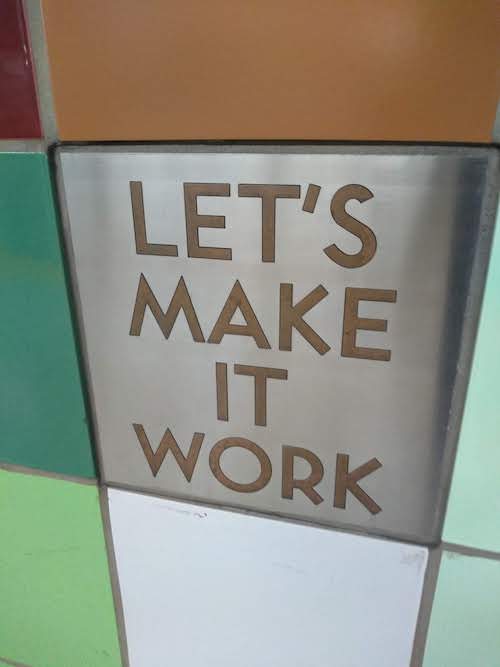
Evergreen as we move through the weeks of this difficult winter.
“And of course it’s not the best, but I’ve been doing my best to learn from this time, to resist the way my own instincts are drawn toward certainty, rules, and constraints, even though that’s not really how the world goes. Last fall as families were making the call between in-person schooling and virtual learning, it was fascinating me that while we spend a lot of time posturing about there never being one right choice in regards to parenting, this really was one of those rare circumstances in which this was actually true. To the point where it really didn’t matter much what side you came out on, because nobody was sure of which was the right one, and all of us were just doing the best we could with the information that we had.
I have found it fascinating for there not to really be rules, for safety to be quantifiable. All of using the tools we have at our disposal to mitigate risk, to take those chances which are worthwhile for us to take. 18 months in, we know enough that this is finally getting to the point of being less frightening than genuinely interesting, license for each of us as individuals to think about what’s right for us. To be thoughtful and deliberate in our choices, and they don’t have to be the same as everyone else’s, and that’s really okay.”
I am trying to be openhearted, trying to operate from a place of understanding in regards to where other people are coming from. I am trouble by the reflexive thinking that’s always looking for someone to blame—other people, our leaders, failed systems, etc. But pitting blame doesn’t help. It isn’t even really real, because a virus is a formidable foe (I hope we have a new government in Ontario in June, but even if we had a different government now, all these things would still be a challenge) and it’s going to find the weakest part of any system, even those systems that are built on strength.
Which is not to say that our systems are robust by any means. But name me a system that is? I have doubts about the perfectibility of anything built by human beings, because imperfection is our very essence. (Speak for yourself, you say. Oh, but I am!)
All of us such flawed, fallible, fearful beings. And yet—we’re all we have.
January 3, 2022
The Old Year Broke Me
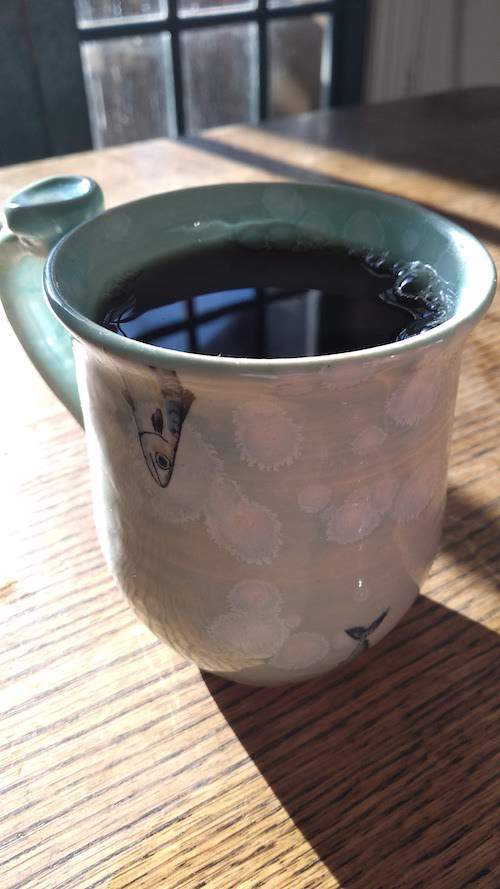
The old year broke me—it did! Which I should have seen coming. Scrolling back in my Instagram feed, I realize that I spent much of November overwhelmed by difficult emotions, mostly stress and sadness. While my own situation was pretty stable, I was feeling everything in the world so deeply, and then the advent of a new pandemic wave absolutely sent me over the edge. And not even the prospect of the wave itself, but everyone else’s perception of it. I saw a news headline at some point mid-December which was, “Holiday Health Advice from 150 Experts,” which pretty much summed it up for me, too many voices in my head. It began to feel like everybody’s Instagram stories were yelling at me, and there was so much doom, which I suppose some people felt was informative, but in my fragile state I interpreted it all as, “We’re all going to die.” It felt like, I told my husband, there was an asteroid heading straight for me. I was having panic attacks, spending nights mostly awake in abject terror that the airplane flying over my house was in fact end times. One day, coming out of the gym, I caught a glimpse of the 24 hour news channel that absolutely destroyed me. My panicked responses were just like I’d been in the first wave of the pandemic, which was SO ANNOYING because I’d already looked back and realized how useless and idiotic my reactions to the crisis had been. AND NOW I WAS DOING IT AGAIN!
Except I didn’t. I called my doctor, after dropping my daughter off at the bus stop and walking up Major Street weeping, the same way I’d wept 12 years previous when that same daughter was born and I was sure I didn’t have Post-Partum Depression and it was just that everything was awful, but only now I understood that it wasn’t that simple. That everything might be awful, but that there’s still no reason to be crying like that, to have to bear the load this way. That maybe the feelings and chemicals rushing through my body have far less of a connection to what’s actually going on in the world, even if those things are hard, than I really understand. No, I surrendered, because I absolutely couldn’t do this. “I just want to be put into a coma for the next three months,” I kept saying, which at the time I thought seemed perfectly reasonable.
I couldn’t have timed it better. (Look at me, optimizing my mental health breakdown, whee!). I put on a pair of trackpants and a sweatshirt, and leaned right into cozytown. The daily toll of worrying about school outbreaks was getting to me, but we made it to the end, and the world seemed to be shutting down a bit just as I kind of needed it to. I finished up my work for the year. I started my holiday reading, and decided that our holiday television indulgence would be Ted Lasso, instead of the bleak murder mystery I’d been gunning for. I got a prescription for Lorazapam, to use as needed, and it helped so much, and then my friend Kate helped connect me with a therapist colleague who even managed to fit me in for a session before her own holidays began, and all of this—as well of the quiet of Christmas, reading When Things Fall Apart, by Pema Chodran, and disconnecting from all those too many voices—helped me so much to feel stable and safer again, though the process of finding balance will be, of course, ongoing.
So that was my December, and it’s all been very intense, and also illuminating, and I am grateful to have so many new tools in my belt as we head into what will no doubt be a winter of pandemic challenges (my pool reopened today and i got to go swimming this morning before it closed again this afternoon due to new provincial restrictions, which include a delay of in-person schooling, all of this probably for the best, but also disconcerting, because there is no careful planning involved, instead it’s like somebody shooting darts with their eyes shut).
In the weeks ahead, I am intent on working on the nature of just being, even in more challenging moments, instead of being overwhelmed by anger and judgment, right and wrong, good or bad. I also want to do better at keeping everyone else’s voices, thoughts, rage and anxieties out of my head. Because Instragram, which was the last social medium that brought me pleasure (though it still does, but omg, stop sharing screenshotted tweets. If I wanted to be on Twitter, I would be on Twitter, and I don’t!) was such a big trigger into my mental health spiral, I’ve also become really wary of of the platform and less excited about creating on it.
And so leaning into #BackToTheBlog is going to be a big part of my 2022 plan, I think. Writing stuff out on Instagram and elsewhere has been a huge part of me processing our experience those last few years, but I’m losing interest in process, or at least in what’s intended as the result of it. Something succinct, and conclusive, a revelation. Except I find myself in a moment where I don’t feel like I know anything at all, which is just fine I think, and I’m happy to sit with that unknowingness—as opposed to the wild speculation that delivered me nothing but anxiety and pain. And here on my blog, I think, is the ideal place to do this.
So, Happy New Year. (And really, I mean it!)
November 26, 2021
What Comes Next
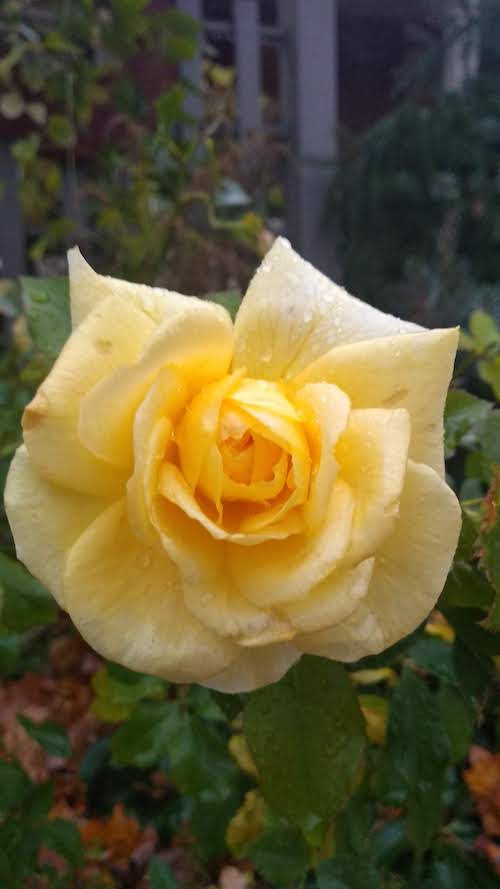
I’m so tired this week, and I’m trying to think of reasons this might be (I woke up too early on Tuesday morning because I was very excited for my husband’s birthday and also to book Iris’s vaccine, and these days I need eight hours of sleep to be a properly functioning human), and then I recall that I was also so tired this time last week, and maybe that’s just how weeks go. Last Friday I was also trying to work through a substantive change within the novel I’m revising, a change that would alter the project considerably, and when I am tired, everything is terrible, hopeless, impossible. In the week since then, I’ve come so far in figuring out what to do about the problem in my book. Last week it was a giant gaping hole, and by now it’s been filled in so much that you might not even notice that it hasn’t always been this way, and I’m thinking that waiting and patience really are the answers to so many questions. In writing, or anything, to skip over the part that’s got you stuck is usually a good strategy. You don’t have to do everything in chronological order, and become exhausted and paralyzed by the question of what comes next. (Wait and see, remember?)
The news seems dire today, not catastrophic floods of last week (climate change news has wrecked my jaw, so much clenching, and now I have to sleep with a night guard that I really ought to wear all day), but a huge increase in Covid numbers and also a brand new variant of concern, and no one knows any more about this variant than they did yesterday when I first spied the headline, the article, when I clicked, just a handful of lines, but it’s almost like a balloon now, so much speculation and opining about something still very unknown and uncertain, but way inflated, and I don’t understand why ordinary people think they have to follow the news, to refresh and refresh, I mean, when really you could check out a newspaper about two times a week and not be that much less informed. It reminds of right before I finally quit Twitter, when I logged into the site and Van Morrison was trending for penning an anti-lockdown anthem and I wish I’d never known that. Passively scrolling and refreshing Twitter does not count as engagement. Neither does refreshing your favourite newspaper’s Covid life-feed, or watching a cable news channel 24/7. What if you decided to curate your own feed, and it was the world right in front of you?
More than anything else in the world, it’s other people’s anxiety that makes me anxious, and I sure wish the media would stop so unceasingly feeding it.
I am looking forward to the holidays, the same thing that happens to me reading-wise on the verge of happening again, which is that I SCRAMBLE to get all the current year’s news releases read, and that at a certain point I thrown up my hands and say, “Fuck it!” Which always happens in early December, before I begin my holiday properly, but my reading habits are on vacation already, and I start reading the fully indulgent paperbacks that have been piling up, books of little consequence and it’s this reading off the beaten track that’s my favourite part of the holiday season, along with the Globe and Mail holiday crossword, so rich with strangeness and surprises.
It was during the Christmas holidays a year ago that I first learned about the UK variant. I always spend my holidays offline, but had opened my laptop to google Eilis Ni Dhuibhne, whose novel The Dancers Dancing had been sitting on my bookshelf since 2013, and which I was finally reading, totally obsessed with. And I remember perusing The Toronto Star online when I was done, and it was either a story about the existence of the variant, or that it had found its way to Canada, and the overwhelming sense of all this was dread, which is what I’m feeling today. (It’s also overcast, which doesn’t help).
But here’s the thing: there’s been far too much of this for far too long, I know, but we’re still here, so many of us, and real life goes on to the point where I’ve started getting frustrated at people again for swimming too fast in the slow lane, such a petty concerns. The pettiness continues, which is wonderful, really, don’t you think? That even two years into a pandemic, that everything needn’t be high stakes all the time, and I just think that adapting is what we do, and we will, and we don’t have to be afraid all the time, freaked out about what’s next, because we’ll find a way. My youngest daughter is getting vaccinated tonight—what a thing is that! And as we headed off into this new year, a miracle like that was certainly never predestined, and maybe just that not everything is always going to turn out terrible, is what I’m saying. Allow for the possibility that some things will be fine.
November 10, 2021
Best Possible Time
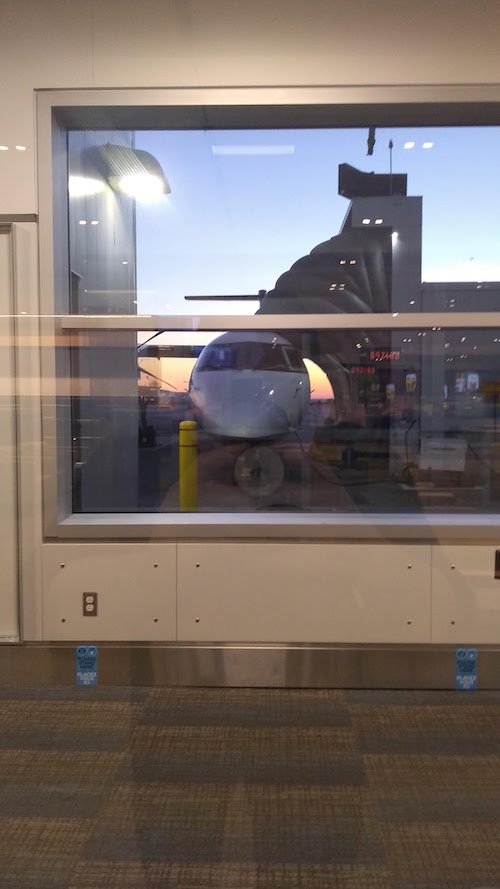
I went away for the weekend—on an airplane. And I KNOW. What decade is this anyway? The experience a necessary one, I figured, when it was offered to me. An opportunity to think and rethink, examining my comfort zone in what has been a time where it’s been all too easy to hunker down inside it.
Something I’ve appreciated all along about living through the last 18 months, or at least tried to appreciate in the moments which such things were also kind of excruciating, is how interesting it’s been to be residing in a time of such abject uncertainty. Even though I really don’t like uncertainty, abject or otherwise, but it really is inherent to the experience of living—it’s just that most of time we have the luxury of pretending otherwise. Imagining our plans and arrangements are somehow in keeping with the order of the universe—and perhaps they are, sometimes, because we’re part of the universe too—but I just know that it’s been good for me to let go (or to begin to let go, or perhaps to ponder the beginning of letting go) of the notion of control. To be asking questions whose answers are far from fixed, if they’re even known.
The line from Tom Stoppard’s Arcadia, which I really need to reread again: “It’s the best possible time to be alive, when almost everything you thought you knew is wrong.”
And of course it’s not the best, but I’ve been doing my best to learn from this time, to resist the way my own instincts are drawn toward certainty, rules, and constraints, even though that’s not really how the world goes. Last fall as families were making the call between in-person schooling and virtual learning, it was fascinating me that while we spend a lot of time posturing about there never being one right choice in regards to parenting, this really was one of those rare circumstances in which this was actually true. To the point where it really didn’t matter much what side you came out on, because nobody was sure of which was the right one, and all of us were just doing the best we could with the information that we had.
I have found it fascinating for there not to really be rules, for safety to be quantifiable. All of using the tools we have at our disposal to mitigate risk, to take those chances which are worthwhile for us to take. 18 months in, we know enough that this is finally getting to the point of being less frightening than genuinely interesting, license for each of us as individuals to think about what’s right for us. To be thoughtful and deliberate in our choices, and they don’t have to be the same as everyone else’s, and that’s really okay.
Because there’s no right answer, which also means there’s no wrong answer, and how often do opportunities come along like that?
October 25, 2021
About Last Spring: The Vaccine Narrative I’m Holding On To
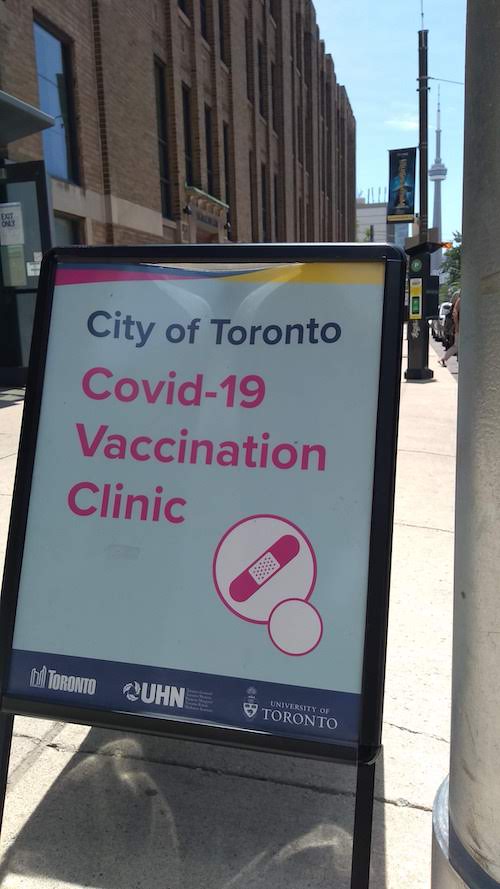
I’ve almost forgotten about last spring. Have you?
Because it’s been about 300 years since then, I think. We had a federal election, and a summer of climate emergencies, and the anxiety of school reopening, and real life returning, albeit slowly and cautiously here in Ontario, which seems to be paying off with a flattened curve, thank goodness. KNOCK ON WOOD.
But all this has been much overshadowed by the noise of a very small minority of our community members who distrust and refuse vaccines, community members whose grasp of science is perhaps as slight as their grasp of public relations—because I could have told them that the tactic of blocking hospital entrances and yelling at sick people receiving life-saving treatment was probably never going to win much support. A small minority of our community members who seem empowered by the idea that they’re part of a much larger movement, an illusion that fizzles out when you check out statistics such as that 73.7% of Canadians are fully vaccinated or that 87.9% of all eligible Ontarians have received at least once dose. Also 77.96% of Canadian 12-17-year-olds are fully or partially vaccinated, which seems to bode well for uptake once vaccines for 5-11-year-olds become available (and BRING IT ON!).
It’s such a far cry from the “vaccine-hesitancy” message that the media insisted on perpetuating as soon as vaccines were available, even as people were lining up around the block in the rain at 4 o’clock in the morning to get them. And it’s a far cry too from the anti-vax messaging we’ve been hearing from last hold-outs over the last two months, people who are becoming more and more desperate to own the narrative as it slips further and out of their grasp, and it becomes clearer that almost everyone you know believes in the Covid-19 vaccine project.
Back in April, however, there was no doubt about this. Just six months ago, at the peak of a devastating fourth wave that saw patients in field hospitals and pregnant women in ICUs, the Astrazenaca Vaccine was approved for people over 40, and suddenly we had a surge in vaccinations here in Ontario that brought us into a new era of immunity, one whose payoffs we’re all benefiting from right now, whether we’re vaccinated or not.
None of this was inevitable—we came into this new year hoping to get our first doses by September, if that. Opposition parties spent the first few months of 2021 bitching about the government’s “botched vaccination rollout,” never mind that we were lucky that vaccines existed at all. I remember the first person I knew in Canada who got a shot, a friend who’s a first responder, and we made him a celebratory card. In England, my mother-in-law got her shot. Other friends who worked in healthcare were vaccinated. And then there began to be more of it—friends who are Indigenous, those with underlying conditions. Every single one of these shots such a victory for every single one of us, bringing us one step closer to the project of herd immunity. There was a whole lot of crying for joy. And then in April, my parents had their shots. My mom got hers on Easter Sunday when we were in town for an outdoor visit, masks on. What a miracle, it seemed like. It was really happening. We just had to hold on, keep going.
I remember a few weeks later, it was Sunday night. Just hours after I’d read news headlines about AZ being approved for those over 40, I got a text from my friend M alerting me to appointments available at our local Shoppers Drug Mart the following week. I received that text while having a bath, and leapt right out again, dripping wet, wrapped in a towel, and phoned Shopper’s Drug Mart, which closed at 10:00. It was 9:30. I had to call back a couple of times before I got through, but when I did, I snagged an appointment for Stuart and I for the following Wednesday. And then I texted the news to my friend K, and my friend R, and both of them would get appointments for that very same week. I helped another pal get an appointment out of town. Other friends would also find appointments through similar ways, and still others could not get appointments at all and were angry and frustrated that they seemed so hard to come by. Huge teams of volunteers (Vaccine Hunters!) began helping to track down vaccine appointments online for complete strangers. On my neighbourhood Facebook group, people were sharing news of availability. More and more appointments were being rolled out all the time, and people were stepping up, helping others step up, and it was one of the most terrific examples of COMMUNITY that I’ve ever been witness to, let alone been apart of.
Not to mention the amazing public health agencies who made the whole thing happen. Sometimes even though it seemed like a systematic disaster—the lack of a central booking portal, random allocations of doses, the significant problem of vaccine availability not being accessible where infection rates were highest. Oh, it was a mess, such a mess, but it was also such a massive endeavour, and by the time I was booking my second appointment and even an appointment for my 12-year-old (CAN YOU BELIEVE IT?) things were smoother, and eventually there stopped being so much to complain about, and by the onset of summer, nearly everyone I know was fully vaccinated.
And this is the vaccine narrative that I’m going to be holding on to. What a rush and what an honour it was to be part of this singular moment, a moment that helped us turn a corner onto much better days and whatever comes after this. (We understand too that Covid-19 vaccines need to be made accessible to people all over the world—and to that end, UNICEF Canada recently raised $9.5 million for their #GiveaVax campaign, to be matched by the government of Canada.)
I’m so grateful to the millions and millions of people who got us here, and the way that each and every one them underlined my faith in people and my neighbours and US.
September 21, 2021
The End of Political Contempt
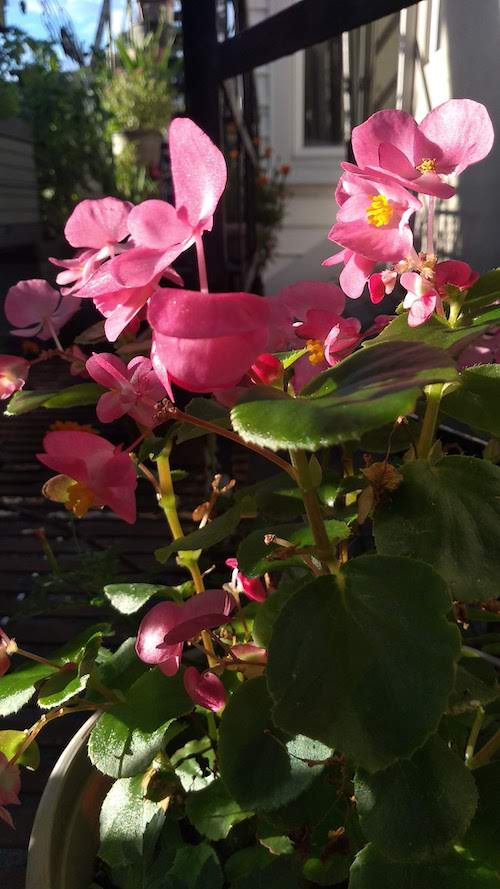
In September 2020, something shifted for me, after an agonizing decade of partisan politics. It was a decade that began with the inexplicable election of Rob Ford as our city’s mayor, complely bursting my comfortable left-wing Twitter bubble, continuing on to you-know-who’s election to the White House in 2016, and then Rob Ford’s less likeable brother becoming premier of Ontario in 2018. Which would kick off a roller coaster of a four year term in which incompetence has been matched only by sheer callousness.
So much has been terrible in Ontario since 2018 that it’s easy for all the specifics to be lost in a whirlwind of nightmarish absurdity. From the widespread consultation of parents on school curricula whose results were never released, to random plans to scrap the full-day kindergarten program, undermining conservation authorities to permit development of green space, policies keeping communities from accessing developer funds to build vital infrastructure, plans to gut public health programs, and so much more—including the egregious act of arbitrarily interfering with Toronto’s municipal structure in the middle of an election, subverting the democratic rights of millions of people.
Labour disputes beginning in the fall of 2019 meant that the school year was regularly disrupted right up until schools closed altogether due to Covid in March 2020—and children in Ontario would remain out of school for the following 18 months longer than anywhere else in the country.
But when schools reopened in September 2020, I just couldn’t do it anymore, the fighting, the anger, the rage. I could no longer go on treating the government as my adversary. It would be impossible to send my children to school and preserve my mental health under such an arrangement, and so I had to shift my perspective. It helped too that the government—in spite of numerous pandemic failings, in particular in the area of long term care, resulting in thousands of devastating deaths—stopped behaving egregiously with such consistency, and seemed to understand (although always too late, always as a reaction) that people need governments after all. And while they weren’t a great government, or even a particularly good one, they were the government that we had right now and I had to put my trust in them as we made our way forward into a most uncertain future.
When I look back on the last five years of my own political action, there’s a lot that I reflect on. I am grateful for the empowerment and unity of the women’s marches, for example, the first time I ever walked in a crowd carrying a placard. But I wonder too if we’d be seeing the same display of rabid right-wing activism today, seemingly ordinary moms putting their kids on display, if there had been no pussy-hatted inspiration. (Those people have never had an original idea in their lives.) I have also reconsidered my feelings about the government of Ontario’s illegitimacy after they were elected in 2018, joining in calls for leaders to resign. While I do think this government’s tenure has brought significant damage to our province and its institutions, both the last year in American politics and our most recent election in Canada have underlined to me how fragile our democracies are and that those who try to delegitimize democratically elected governments do so at all everyone’s peril. And I’m thinking again about the power of rage as a political tool, which seemed all fine and well when we were raging for our own truly noble causes, but what happens when other angry people start to use that tool too, and their anger is cruel, divorced from reality and terrifying?
When I look back at the last five years of my own political action, what I regret is the contempt I felt, contempt which is not so different from that which resulted from Barack Obama’s political success in 2008, and which has a direct line to the election of Obama’s successor 8 years later. It was actually Trump’s election which made our own contempt for Premier Doug Ford all the more vociferous—does the world really need more than one yellow haired angry populist? (Apparently we needed three.) But of course it was contempt for the previous premier, Kathleen Wynne, that had paved the way for Ford’s unlikely win in the first place.
“Contempt is the opposite of empathy,” Edward Keenan wrote earlier this month in The Toronto Star. “And as U.S. President Joe Biden has said, “empathy is the fuel of democracy.” If we cannot imagine ourselves in the shoes of other people, we have little hope of working with them in a healthy democratic society.”
The Ontario government has been terrible and inept, but they were voted in—not for better, but for worse, it’s true—by a fair election by my fellow Ontarians. And this idea that I myself perpetuated that somehow those people’ votes were less valid than mine or didn’t matter is so absolutely anathema to a functioning democracy—and we see the same dynamics playing out now in far right politics underlined by racism and white supremacy. “Canada use to be a great country to bad its not anymore cause of people like you,” in the brilliant words of a friend-of-a-friend on Facebook last week, and you could almost print that on a little red ball cap, you know?
“I don’t know how to explain to you why you should care about other people.” In the tidal wave of despair that was 2017 and onward, that viral phrase (often mis-attributed) was something to cling to, so perfectly articulating the powerlessness and despair that so many of were experiencing in the face of cruelty and obtuseness. The first time I saw that phrase, in a tweet, no doubt, I am sure that I RT’d it. THIS. But here is something else I’m thinking twice about, this politicization of care, or maybe the partisan politicization is what I mean, because care is certainly political. But I’m resisting the arrogance now that me and people who think like me occupy a kind of moral high ground, and that people who vote for other political parties don’t care for other people too, that they aren’t good neighbours, and generous friends, and charitable donors, and nurses, and teachers, and personal support workers. I’m resisting the idea that in order to care, you have to care the same way I do. I’m resisting the idea that we have no common ground.
Last night was the first election in as long as I can remember that didn’t, to paraphrase Sally Rooney in her latest novel, Beautiful World, Where Are You, “make me feel like I was physically getting kicked in the face.” The election that nobody wanted, perhaps, but its low stakes were almost refreshing—the angry Trumpy man in the purple suit leads a racist fringe part emboldened by anti-vaxxers this time but, statistically speaking in Ontario, our anti-vax population is so tiny that they’re having a hard time spreading the Delta variant, let alone fascism. And while I know details are sketchy and shifty, the other parties were all talking about vaccine mandates, and climate change, and the PC leader was at least trying not to come across as a troglodyte who wants to get all up in my uterus, and I’ve got to give him points for that. It’s certainly better than the alternative.
It’s certainly better than the alternative. A phrase that’s occurred to me several times in the past year or so, especially since we’ve seen the alternative, glimpsed on January 6 in Washington DC, in democratic crackdowns in countries like Belarus and Afghanistan, and so many more, places where political contempt has opened the door to extremism bringing forth a vicious spiral of democratic unravelling. I don’t want to do that anymore.
August 13, 2021
The Path Forward
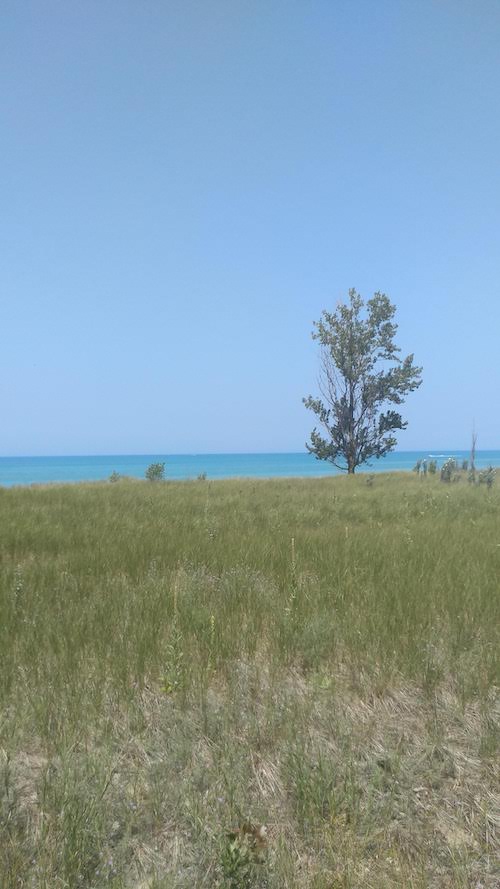
Pandemics end, as history has shown us, but the other thing that history has shown us is that they do tend to go on for a while before that. This is in their nature, such a formidable foe that we can’t simply put down their persistence to bad government policy or even poor public health policy. Even with great policy and robust public health measures, the pandemic would continue, a problem without an immediate solution, and that’s before we factor in those people who are challenging/undermining public health measures, spreading misinformation, and “just asking questions” that make us much more vulnerable as a community than we necessarily have to be. While it feels better sometimes to have people to rage against, someone to blame (and there sure are people whose actions have made everything so much more awful!), it doesn’t really change anything about where we’re at.
I’ve been observing the ups and downs of pandemic life over the last year and half, which are indeed a reflection of case counts, but the waves I’m thinking about are more emotional ones. It felt pretty fantastic to be in Ontario in June with the city returning to life, with LIFE returning to life, to see friends and family and experience something close to normalcy. This summer has been glorious, which is just what I was hoping for as it was so hard to drag ourselves through a rather dismal spring of field hospitals and virtual school. Last summer was also pretty grand, and this is what I’ve tried to keep in mind as we ride the pandemic roller coaster—that nothing lasts forever, for better or for worse. All of us who kept going toward that light at the end of the tunnel, and for the last six weeks we’ve been bathing in it. There is a point to persisting.
And now it looks like we’re heading back into the tunnel again—and anyone who’s been paying attention to the UK and US should have seen this coming.
But it’s not the same tunnel—you know that, right?
In a few ways, it’s definitely a shitty tunnel, it’s true. A highly contagious variant that disrupts many of the things we’ve come to take for granted about Covid and what’s safe to do. But in so many more ways we’re in such a better place—so many of us did the right thing and went out and got vaccinated (which meant that those people who aren’t able to be vaccinated—including my 8 year old—are safer). While vax rates have fallen off (I wish news media would quit comparing rates to that ONE DAY when Toronto set a world record and vaccinated 27,000 people—not a fair measure!), more people are still getting their shots ALL THE TIME and people are coming up with all kinds of creative ways to reach those who haven’t had access yet. And while so many Twitter epidemiologists are still flexing their egos and (seriously!) because VERY OBNOXIOUS, scientists know more about Covid than they ever have. We’ve come such a long long way. Even better—think of what it means that 72% of Ontarians are vaccinated, and how this undermines all kinds of common narratives perpetuated by grifting quacks. In this way, so many of us really have been all in it together, and that’s amazing and powerful.
We’ve also made it this far and learned a lot in the process about how to take care of ourselves and and each other. Mask-wearing is unremarkable now. Outdoor gatherings are the norm. Most people aren’t washing their bananas in Lysol anymore. Handwashing is a habit. Sanitizer is everywhere. And all of this matters. (Even the Lysol! Because washing your food with Lysol is NOT GREAT!).
One thing I’ve learned is that I really was too cautious in isolating myself and my family from others. My kids were in school, so the stakes seemed high (and they were) but I think I went too far in SAFE direction, taking measures that really didn’t have any measurable effect in the end. I’m not going to do that again. I’m going to continue to see people outside if they’re vaccinated. I am going to do my best to live my life as fully as possible within the parameters of sense. I don’t have to be a martyr. I don’t have to get frustrated at people who are making different choices than me (because it really doesn’t help anyone if I do).
Another thing I’ve learned in the last year that’s proven essential is the importance of CHILLING OUT. When my kids went back to school last September, I quit Twitter and cut out numerous voices who were making an anxious situation even worse. I try not to think so much about the big picture, because the big picture is overwhelming but also I’m not in charge of the big picture, nobody pays me to look over all of society, and so I just have this little patch that I’m responsible for and I’m doing the best I can.
As @yellowmanteau has written so gently and perfectly, limiting your Covid intake is advisable. I read just a handful of news sources (and one of them is my Guardian Weekly magazine, whose latest cover is all about the UK emerging from its latest wave, which is a wonderful forecast of the future). I only check the numbers when reading them makes me feel good.
I also recommend reading the article by Ed Yong in The Atlantic on the new route out of Covid now that Delta has made everything harder (and the path longer). @science.sam shared it in her stories and it’s a clarifying view of the path forward, affirming what @science.sam has been saying all along (and saving my sanity in the process) which is ALL PANDEMICS END.
We’ll get there. Keep going! You’re doing it. (Unless you haven’t been vaccinated yet: go do that.)





